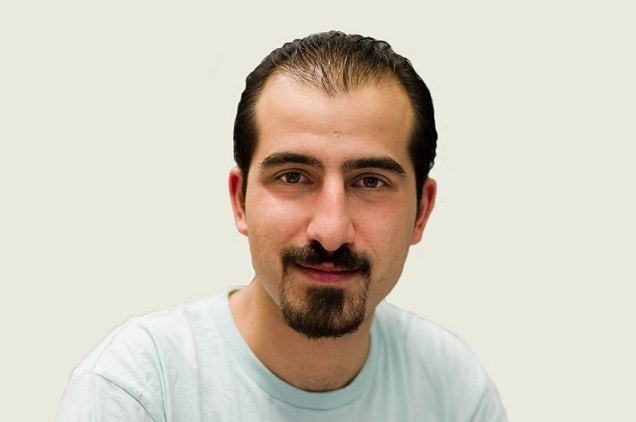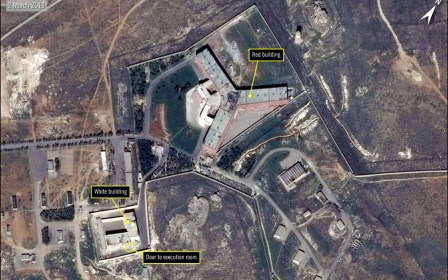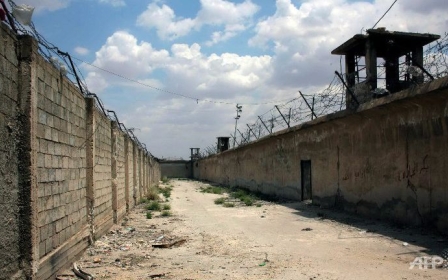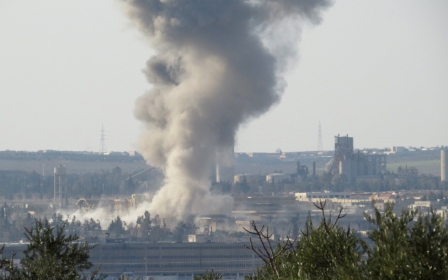Remembering Bassel Khartabil: The activist who chose freedom over survival

Bassel Khartabil was one of the first people I met in Syria in the spring of 2011. It was before the bombs, the wanton destruction, the sieges, the hunger and the mass displacement.
For the first time in its modern history, peaceful protests were sweeping through cities across Syria, demanding freedom and respect for human rights. Almost instantly, the government started cracking down on protesters.
Bassel could have carried on with his comfortable life, or he could have left Syria and prospered elsewhere. He could have survived. But he chose to stay
I went there to document the very first crimes that the Syrian authorities committed in this brutal conflict - killings of peaceful protesters and activists, mass arrests and torture. It was difficult to track down witnesses, especially from the south of the country, and if it weren't for Bassel we probably wouldn't have managed to document these violations.
I still miss Bassel’s ironic sense of humour. Bassel seemed to have it all. He ran a profitable software development business and was dating his future wife. He could have carried on with his comfortable life, or he could have left Syria and prospered elsewhere. He could have survived.
But he chose to stay.
Bassel decided to use his skills to peacefully fight for freedom, human rights and equality against an oppressive government. He helped advance freedom of speech and access to information through the internet. He made sure the world could hear the voices that the Syrian authorities were trying to silence. He sought, collected and distributed information that will one day undoubtedly be part of the indictment against the Syrian authorities.
Bassel was careful, and he did everything to protect his sources. But he did not protect himself.
Years of not knowing
In March 2012, the Syrian Military Intelligence service arrested him in Damascus. For eight months, they held him in an undisclosed location and tortured him. He was denied contact with his family or anyone else.
Then came a ray of hope - his family found out he was still alive and had been transferred to Adra prison in Damascus. People around the world, including thousands of Amnesty International members, campaigned for his release.
While in detention, Bassel received several awards, including the 2013 Index on Censorship Digital Freedom Award for using technology to promote an open and free internet. He was named one of Foreign Policy magazine’s Top 100 Global Thinkers of 2012 “for insisting, against all odds, on a peaceful Syrian revolution”.
Prisoners are held in appalling conditions, denied any contact with their families or lawyers, subjected to torture and extrajudicial executions. Amnesty International has interviewed hundreds of witnesses – former detainees and former servicemen – who described in harrowing detail their experiences inside these prisons.
Tens of thousands of people have disappeared in a network of jails designed to humiliate, degrade, sicken, starve and ultimately kill those trapped inside
In Saydnaya military prison alone, Amnesty International estimates that as many as 13,000 people had been secretly extrajudicially executed between 2011 and 2015. Witnesses have described how these executions are carried out.
Before the execution, detainees are severely beaten for several hours. In shambolic “trials” at the Military Field Court in the middle of the night, they are blindfolded and informed they have been condemned to death, only minutes before a noose is placed around their necks. The prisoners’ bodies are then taken away by the truckload to be secretly buried in mass graves.
Stop the killing machine
These spine-chilling testimonies haunted us whenever we thought of Bassel. We never wanted to believe that this could one day be his fate. His family last heard from him in October 2015, when he managed to inform them that he was being transferred from Adra prison to an undisclosed location.
Last week came the news that we all feared most. Shortly after his transfer, Bassel was “sentenced to death” by a closed-door Military Field Court and extrajudicially executed.
We will continue to document human rights violations committed in Syria so that one day those who killed Bassel will face justice
There are no words to console Bassel’s family. There are no words to console thousands of other Syrian families who live through the daily agony of not knowing what happened to their detained relatives.
Bassel’s life exemplified the very best of Syrian society. He embodied the essence of the peaceful protest movement that was later hijacked by armed groups and used in political manipulations between the US, Russia, Iran, Saudi Arabia, Turkey and others.
His death is a grim reminder of what the Syrian government has been doing for years under the pretext of fighting terrorism: “disappearing”, torturing and killing people who have been unlawfully detained.
We cannot bring Bassel back. But there are at least three things we must and will do to honour his memory.
WATCH: A virtual tour of Syria's most notorious torture prison
We will redouble our efforts to protect and support people like Bassel in their unequal struggle against repression and injustice. We will continue to meticulously document human rights violations committed in Syria so that one day those who killed Bassel will face justice.
And we will demand, again and again, from Russia and any other relevant government, to use their influence on the Syrian authorities to stop this killing machine before thousands more lives are lost.
- Dr Anna Neistat is the Senior Director for Research at Amnesty International. Before joining Amnesty International, Neistat worked for more than a decade as associate director for Program and Emergencies at Human Rights Watch and has conducted over 60 investigations in conflict areas around the world, including Syria, Afghanistan, Pakistan, China, Zimbabwe, Nepal, Kenya, Yemen, Chechnya, Sri Lanka and Haiti. She holds an LLM degree from Harvard Law School, a JD and PhD in law, and an MS in history and philology. She is a member of the New York State Bar, and teaches at the Paris School of International Affairs at Sciences Po.
The views expressed in this article belong to the author and do not necessarily reflect the editorial policy of Middle East Eye.
Photo: Bassel Khartabil (Twitter/@ArabThomness)
New MEE newsletter: Jerusalem Dispatch
Sign up to get the latest insights and analysis on Israel-Palestine, alongside Turkey Unpacked and other MEE newsletters
Middle East Eye delivers independent and unrivalled coverage and analysis of the Middle East, North Africa and beyond. To learn more about republishing this content and the associated fees, please fill out this form. More about MEE can be found here.






